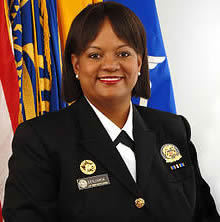By Ariel Worthy
Times staff writer

Alabama currently has thousands of residents who could have access to healthcare, but do not, said former U.S. Surgeon General Regina Benjamin.
“The state has chosen not to take the Affordable Care Act, so a lot of people do not have proper access to healthcare like they should,” said Benjamin, who lives in Mobile.
If there was an increase of access to healthcare and health insurance, there is a greater chance of helping more residents, she said in a phone interview with The Birmingham Times.
“It’s easier for cities who have access to healthcare, but in a lot of rural communities, they might have health insurance, but they do not have access to hospitals, or the drive is far,” said Benjamin, who last week attended the 11th annual UAB Health Disparities Research Symposium. “A lot of small hospitals have closed down, and that is part of the issue with denying healthcare for some.”
One issue, Benjamin said, in the black community is the increased percentage of hypertension and renal failure.
“You can definitely see the difference of healthcare in certain populations,” Benjamin said.
According to Benjamin, sometimes there is institutionalized racism in the health field.
“Sometimes it can be a focus more of your cultural or socioeconomic background,” Benjamin said. “Often there are different habits in different cultures; especially with health. Sometimes we have to make sure they are not only taking their medicine, but also making sure they aren’t doing the same thing that might be making them sick.”
The solution is hoped to come in the form of policy, according to Benjamin. It starts with educating the communities on healthier living.
“This state smokes more, our cigarette taxes are lower which makes them more affordable and accessible,” Benjamin said. “We have to encourage people to live healthier lives.”
America is a country with great opportunity, but one with many healthcare disparities, Benjamin said.
“We started looking at health disparities about 10 years ago,” she said, “and noticed that some people didn’t have the same access to healthcare as others.”




